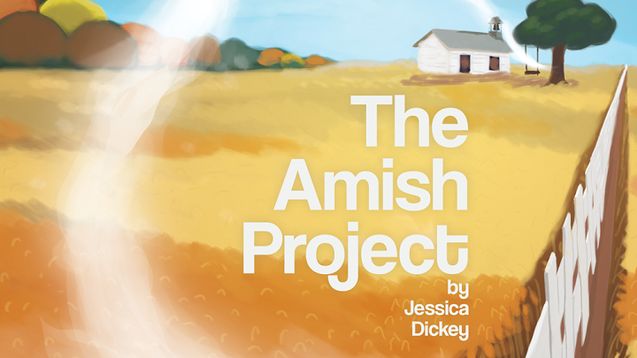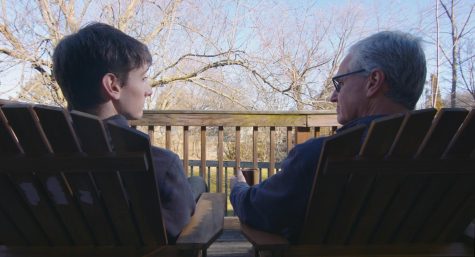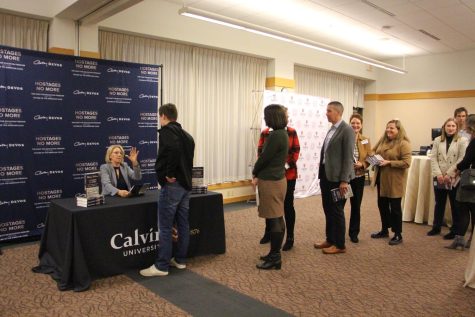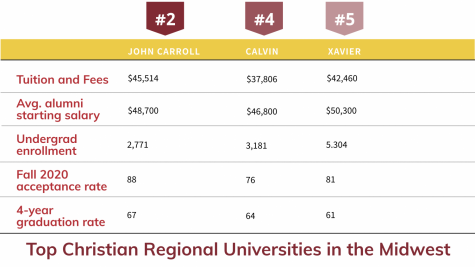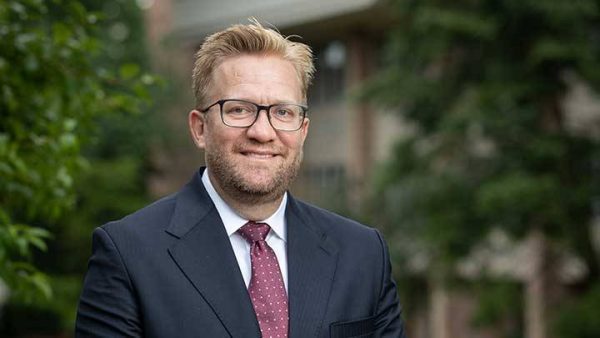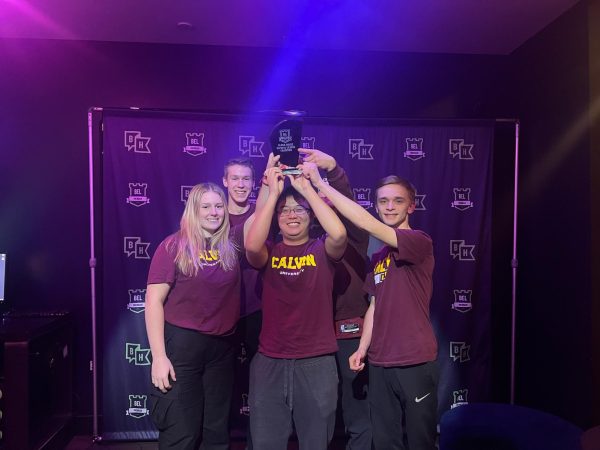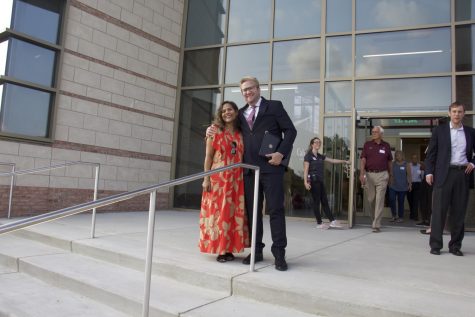Calvin Theatre Company highlights forgiveness
This interim, professor Debra Freeberg’s theater class produced “The Amish Project,” a production which chronicles the true story of an Amish community.
On October 2, 2006, a gunman entered an Amish schoolhouse in Nickel Mines, PA and shot 10 girls, killing five, before shooting himself. The response of the Amish shocked the world: they immediately forgave and extended grace and love to the family of the gunman.
The class began the interim by reading “Amish Grace” by David L. Weaver-Zercher, Donald Kraybill, and Steven Nolt and ended by preparing final projects in a variety of mediums.
Mabel Uhl said the class gave her a better understanding of what forgiveness does to the human brain from a scientific point of view.
Uhl said this will help her “going forward in her relationships with the knowledge that forgiveness is the best way to go, not holding on bitterness and hatred.”
Jo Newton, another student, was intrigued after reading the play for the first time in the Calvin Theatre Company class in the Fall of 2017. Newton found that learning about decisional forgiveness as opposed to emotional forgiveness was one of the big takeaways. The Amish believe forgiveness to be a choice and so practice decisional forgiveness. Contrastingly, emotional forgiveness is simply choosing to forgive to rid the mind of the negative emotions.
Crew work was part of the course work as well, including building the set, sound, and wiring the lights. Both Newton and Uhl agreed that the time spent helping in various ways to create the play helped them better understand the unity and community of the Amish. Uhl who worked on Costumes and Carpentry pointed out the barn raising. The class had to work together to put up this large piece in the Lab Theater.
Uhl said, “It was a fun way to wrap building our set, connecting it back to the way the Amish also have fun. Barn raisings are meant to be fun.”
Newton said that the idea of dabbling in other crews helped Newton better “understand the communal society of the Amish and how they support and uplift each other, even with the family of the shooter. They embraced them and uplifted them.”
Student Nathan Meyer, who played the role of the shooter, explained that when he first got the role, he didn’t realize the weight it had until the work and rehearsals began.
“When it came time for our first read-through, an overwhelming feeling rushed over me…it was a combination of feeling immensely honored to be cast in the role and the subsequent, terrifying realization of the task that was ahead of me,” said Meyer.
Meyer also says he is grateful for the role because it reminds him “not to take this opportunity for granted.” As he prepared for this role, Meyer started seeing Eddie as a human being. He wanted to “seek out [Eddie’s] humanity and treat him like a person you could talk to in real life.” Meyer also says that getting to play this character has affected him greatly. It left him reflecting on how to view relationships better according to God’s grace.
One thing Meyer wants the audience to remember about Eddie is that he is a regular human who committed a terrible crime, but the situation is complex.
Uhl said the production felt heavy and emotionally draining. She felt hopeful, however, because the story doesn’t end where the play ends. The memory of the event continues on and it allows others to think about how forgiveness impacts them and it allows researchers to explore the science behind forgiveness.
“I cried twice. The climax of this show really shows the humanness of the shooter,” Newton said.
Newton went to Nickel Mines over Christmas break and met a cashier, who still remembered the historical event.
“Just because you remember something and because it shapes your life, doesn’t mean it defines your life or that it should. We shouldn’t let one thing define us. The Amish and Non-Amish Community of Nickel Mines used it to change the way it defines them,” said Newton.
Meyer said the play taught him a lot about grace being a process just like grief, but that they can work together. But, but forgiveness and grace are not meant to crush one another.
Meyer said, “While grace should be perpetual and grief is, God willing, temporary, the combination is more important than I think most of us realize.”




